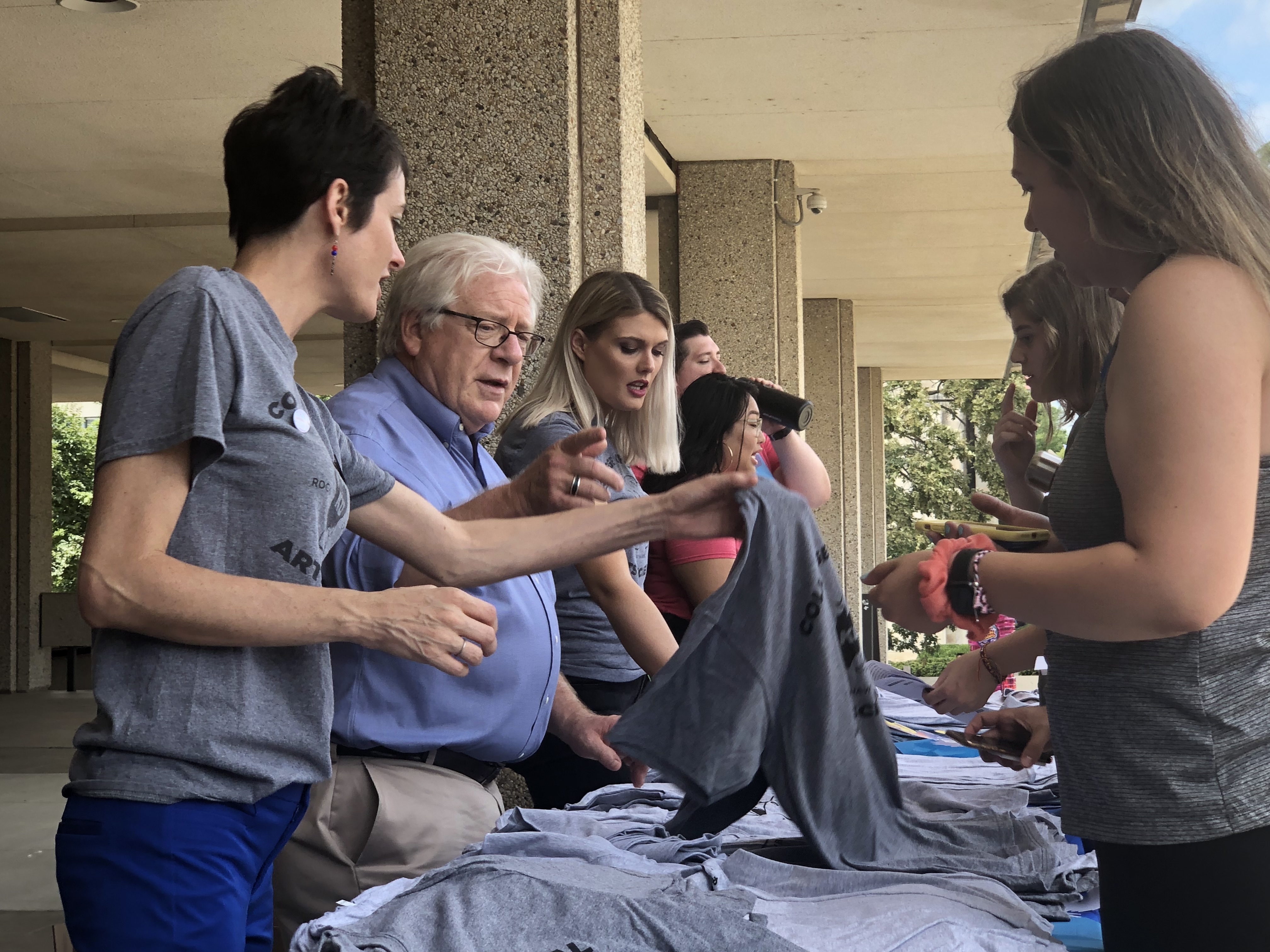
Welcome to the start of the Fall 2019 semester and a new academic year. Since July 1, when I officially assumed the position of interim dean of the College of Liberal Arts & Sciences, I’ve been working in Strong Hall, getting to know the various divisions of the College office, and getting a more comprehensive picture of everything that the College does for KU.
Even though I’ve spent my entire career of more than 30 years here as a professor of human development and psychology in the College, the learning curve has been pretty steep, and I’ve appreciated the efforts of the College staff in making this transition easier for me. The College is described as the Heart of KU and I have come to recognize over the last two months how apt that characterization really is.
As I’ve begun to meet with chairs, directors, faculty, and staff, and participate in start-of-the-semester activities with students, I have been asked about my priorities for the College during this interim period. I have shared three particular issues that I’d like to address, and I’ll speak to those here.
My first priority is to support scholarly activity. As I see it, the fundamental role of the College is the generation of new knowledge that ultimately benefits human welfare and society. In my eyes, the College’s impact and contribution in this rests largely on the quality of the research, scholarship, and creative activity coming from the arts, humanities, and sciences. In a time of limited internal resources at public universities, maintaining this quality will be a challenge, and so efforts to sustain research and scholarly programs of work with external funding will need to be especially encouraged and prioritized wherever possible.
A second priority is to orient the student experience toward skills that will help them succeed in the face of changing workforce needs across the U.S. As Chancellor Girod has stressed repeatedly, the current generation of students will change careers(not just jobs…careers) far more frequently than previous cohorts of students. This implies that their success in the workforce will require quality in skills that are readily translatable across different work sectors. These include for undergraduate students a proficiency in oral and written expression, quantitative literacy, and the ability to evaluate evidence and logical arguments critically. For our graduate students, we must broaden our concept of career opportunities beyond the professoriate and revisit our curriculum accordingly. We should do everything we can to ensure that students have adaptable skills that will serve them long after they leave KU.
Finally, the College will be able to accomplish very little in the current fiscal climate without attending to real-world budgetary constraints. The last few years have been difficult for KU. The College still has some work to do to achieve financial stability from the impact of those years, and we will be working to adjust to the new budget model to be implemented over the next year. I will be working to streamline operations and workload within the College, to eliminate redundancies, and make us as efficient as possible in carrying out our core mission. The ultimate goal is for the College to return to building strong programs that reflect KU’s place as the flagship research institution in the state. Moving toward these goals will be a collective effort that will take the contributions and leadership of our faculty, staff, students, and alumni. I am excited to work closely with many new partners this year and appreciative of the opportunity to work alongside all those who keep the College moving ahead.